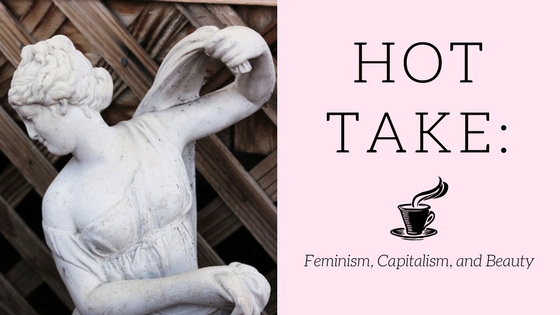Feminism doesn’t have to be pretty

Photo via Amber Avalona under Creative Commons license
Women are facing standards they must reach in order to be treated with respect. These standards oftentimes echo ideal femininity, and it’s time to examine how makeup contributes to this ideal.
Here’s a hot take: makeup is not synonymous with female empowerment, and women should stop letting corporations swindle them into thinking that any sort of purchase can be an expression of activism.
Feminism has taken pop culture by storm. It’s made itself palatable to the average woman as society progresses, and as she moves out of the confines of traditional gender roles. This effect is only amplified by the movement’s utilization of social media and the internet. Overall, it’s positive, as more women becoming active in the fight is possibly the biggest asset feminism has.
But there have been some costs. The ideas of feminism have to be packaged nicely in order to appeal to the general public, and this has manifested negatively on many different fronts. For one, it’s why you’ve seen a shift in how feminism is discussed, specifically the proclamation that feminism is for both men and women, and that feminists are not revolutionaries but merely want equality between the sexes. That’s fine, of course, and true. But it’s a gross over-simplification. How did feminism transform from a loud, unabashed movement for women’s liberation to something that almost seems to put men’s comfort (thus the “Don’t worry, it’s about you, too” language) over women’s rights?
It’s all about the appeal. Perhaps from a strictly logical perspective, certain elements of a movement should be sacrificed in exchange for actual progress, or for the support of allies. That’s a whole other debate entirely, but regardless, feminism has been given a whole new brand. Problematically, as feminism enhances its marketability, the beauty industry has found a way to profit.
Makeup and beauty companies are becoming painfully aware that the typical strategies don’t work on the modern woman. The adjustments are often times cringe-worthy, whether it’s ads about “slaying” with your eyeliner or being “unapologetic” about your perfect, shiny hair. The ad campaigns are everywhere, but the empowerment they promise is only skin deep.
Corporations, by and large, don’t care about equality. Whether women want to face it or not, makeup companies by nature profit off of insecurity. It’s why women in makeup ads are still models, and why the norm for women is simply unreachable. Women wanting to hide themselves is how these CEOs stay rich. They rely on stopping feminism dead in its tracks. It’s just the hard truth of the matter. Yes, makeup can be art. Yes, people can wear makeup solely for themselves — but it’s important to understand the larger dynamic.
Some facets of the movement have reveled in this idea of a progressive beauty industry, and as a result have crafted the aesthetic of feminism in a way that comforts them. This is an aesthetic defined by stereotypical femininity. It doesn’t help that conventionally feminine and attractive women are the ones afforded platforms, who have the ability to shape feminism, and now there’s a clear image of what “feminism” looks like.
This is where the problem comes in. Associating makeup, and by extension hyperfemininity, with feminism is a mistake. Even if makeup is a phenomenon experienced by many women, it does not define womanhood, and to insinuate so is to disinclude the women who need feminism the most. The women who don’t improve themselves, who just exist, are not taken seriously in today’s society. Not wearing makeup is seen as inappropriate in public space, and especially when women are seeking opportunity and success. Defining feminism as the purchase of beauty products works against these women. More broadly, it makes the equality today’s feminists advertise inaccessible unless you look a certain way.
The solution is complicated. First, it’s important to understand that the ads won’t change. In America’s immutable capitalist society, these companies will always have the same primary motivations. The next step for women’s liberation is not the CEOs, but the average women who proclaim their status as feminists.
It’s time to recognize why we wear makeup. Beauty and makeup products themselves mean nothing, and what you do to your own body is a right that should be protected. That being said, the reasoning behind women’s actions and the reasoning behind their purchases do have an impact on other women, particularly young girls. There’s been a lot of talk about what makes a “bad feminist,” and the conversation has left a lot of things uncertain, but I’d say complacency is pretty high on the list.
So does this mean that women should stop wearing makeup? Certainly not. What should be achieved, however, is a change in consciousness. This is the only way to change the fabric of society in the future, to teach the girls of today differently than we were taught.

